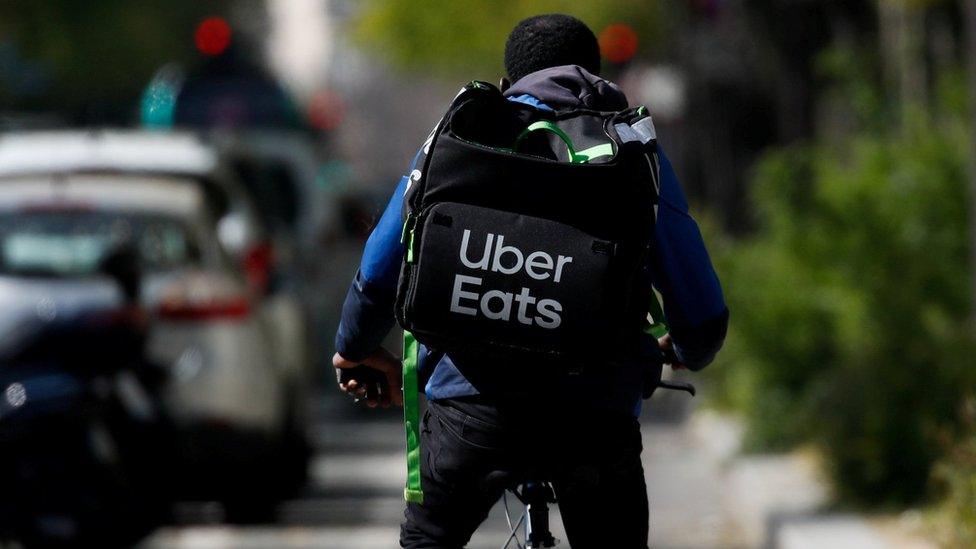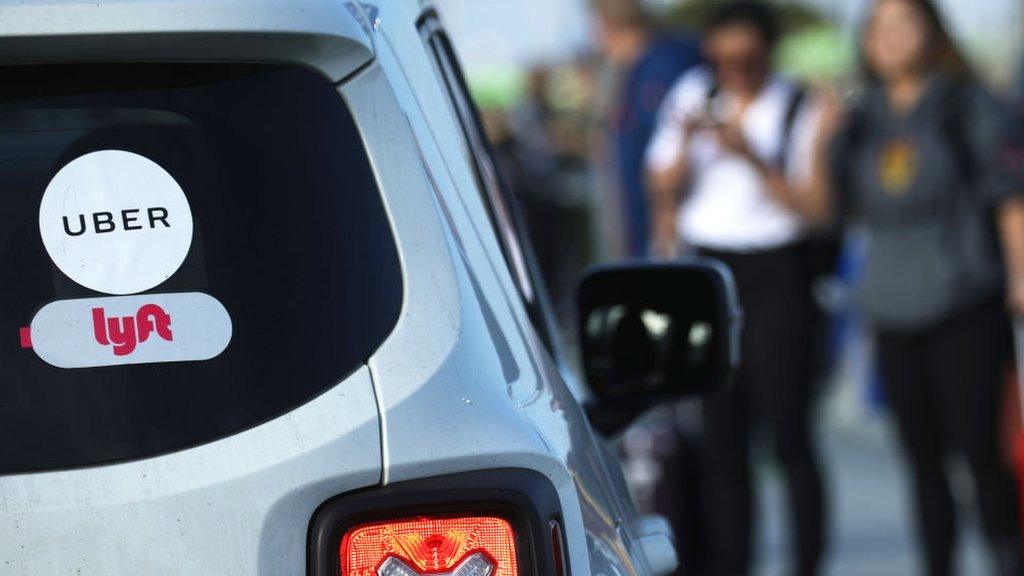Uber sees 'fundamental shift' in food delivery demand
- Published

Uber's food delivery business is booming
Uber's food delivery business has more than doubled, as the pandemic increases appetite for online grocery orders and restaurant takeaway.
The firm said revenue from its Uber Eats service hit $1.4bn (£1bn) in the three months to 30 September, jumping 124% from the same period in 2019.
The growth helped offset steep declines in the firm's core rides business.
But Uber still recorded a loss of about $1.1bn in the quarter, roughly the same as last year.
Uber boss Dara Khosrowshahi said demand for food delivery has stayed strong even as countries lift restrictions, a promising sign for growth in the Uber Eats business.
"We've got more eaters, they're staying longer, they're eating more," he told investors on a conference call to discuss the firm's quarterly results.
"There's no question in my mind that ... there's a fundamental behavioural shift that has gone on," he added later. "People aren't going to stop using Amazon. People aren't going to stop using Eats."
The growth in delivery marked a stark contrast to the firm's ride-hailing business.
There, Uber said bookings and revenue for its taxi service remained roughly half of last year's levels, despite improvement since the spring.
Demand has recovered most in Europe, while lagging in the US and Canada, its most important market, executives said.
They warned that the resurgence in Covid cases in Europe and new restrictions in countries like the UK and France would likely hit demand in coming months.
- Published4 November 2020
